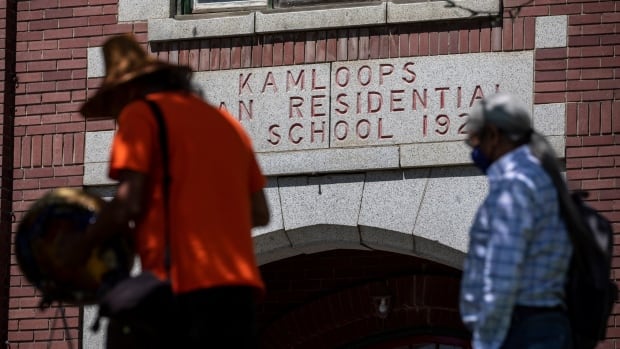The federal government and 325 First Nations have reached a proposed settlement of a class-action lawsuit seeking reparations for the destruction of language and culture wrought by Canada’s residential school system.
The signed settlement agreement, dated Jan. 18, was filed in Federal Court on Thursday before a Friday morning hearing in Toronto. The agreement still must be approved by a judge before it can roll out.
While the amount is covered by a 24-hour publication ban, CBC News can report that Canada agreed to pay the settlement money into a new trust fund that will operate for 20 years, if the court approves the deal.
“Two primary objectives of the Indian Residential Schools system were to remove and isolate Indigenous children from the influence of their homes, families, traditions and cultures, and to assimilate them into the dominant culture,” the agreement says.
“The consequences of the Indian Residential Schools system were profoundly negative, and this system has had a lasting and damaging impact on Indigenous survivors, their families, and communities.”
Tk’emlúps te Secwépemc and shíshálh Nation in British Columbia filed the claim for collective compensation in 2012 as part of a broader class action known as the Gottfriedson case.
The Gottfriedson case initially consisted of the combined band reparations claim (known as the band class) and the residential school day scholars claim. Day scholars are survivors who attended the institutions during the day but went home at night, and were left out of the 2006 residential schools settlement.
The Trudeau government reached an out-of-court settlement with day scholars in June 2021, agreeing to pay cash compensation to survivors and their descendants, settling part of the Gottfriedson case.
But Canada initially refused to negotiate with the remaining band reparations plaintiffs. Their case was heading for trial until it was abruptly adjourned to pursue negotiations last fall.
Announcement expected Saturday
Crown-Indigenous Relations Minister Marc Miller and lead plaintiffs are scheduled to make an announcement on Saturday in Vancouver. His office and class counsel declined to comment before that.
The proposed settlement says the plaintiffs will establish a not-for-profit-corporation, independent of the federal government, to, among other things, act as the new fund’s trustee, invest the fund, and disburse cash to band class members.
The not-for-profit will aim to support four pillars for revival, protection, promotion and wellness of Indigenous languages, cultures, heritage and communities, which the plaintiffs developed.
The organization will be governed by a board of nine Indigenous directors, of whom Canada will choose one, the deal says.
In exchange, the band class members agreed to “fully, finally and forever” release the Crown from claims that could conceivably arise from the collective harms residential schools inflicted on First Nations, as alleged in a Feb. 11, 2022, re-amended statement of claim.
This legal release would not cover or include any claims that may arise over children who died or disappeared while attending residential school, the agreement says.
Because compensation would be distributed over a long period, and because the amount would vary depending on the size and remoteness of each First Nation, it’s impossible to estimate presently how much compensation each will get, say documents filed with the agreement.
An estimated 150,000 First Nations, Inuit and Métis children were forced to attend residential schools in Canada, which were church-run and government-funded institutions operating countrywide for more than a century.
The Federal Court in Vancouver will convene for the settlement approval hearing on Feb. 27.








